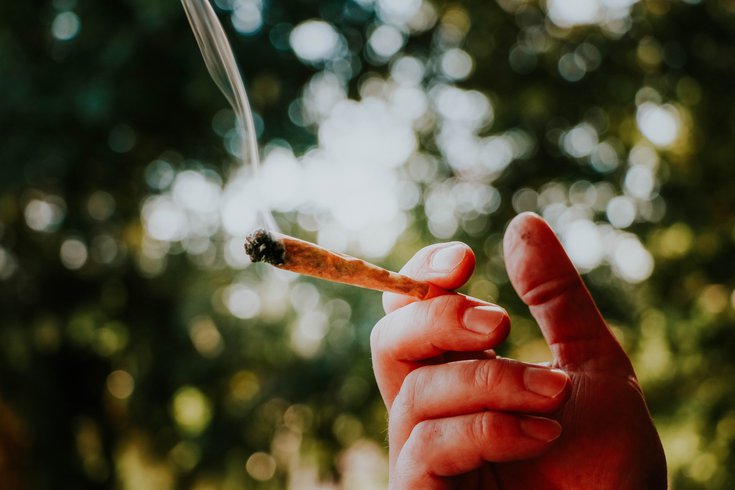
March 23, 2022
 Elsa Olofsson/Unsplash
Elsa Olofsson/Unsplash
A report from the Marijuana Policy Project listed Pennsylvania among states with the harshest marijuana laws despite 68 percent of voters in the state supporting legalization.
Marijuana laws in Pennsylvania are among the most severe in the country despite a majority of voters supporting legalization and regulated sales, according to a report from the Marijuana Policy Project.
The organization, which is working towards changing federal cannabis laws, examined states where policies lag the most behind public opinion. Research showed that there were 19 states who still penalize marijuana possession with possible jail time and a criminal record, even though 68% of Americans agree it should be legal.
Possession of cannabis has been decriminalized in 31 states, but only 18 of those have legalized recreational use among adults.
A 2020 poll from Harper Polling found that 62% of likely voters in Pennsylvania support the legalization and sale of recreational marijuana. However, under current state law, those found in possession face up to 30 days of imprisonment or a fine of up to $500 for 30 grams or less — just over an ounce.
In Philadelphia, marijuana use was decriminalized in 2014, but the city has yet to legalize it. Possession of 30 grams or less for personal use comes with a fine of $25 and smoking in public comes with a penalty of $100. Being caught with a larger amount can result in arrest and jail time.
Other parts of the state have also passed decriminalization measures, including York, Pittsburgh, Harrisburg, Steelton, State College, Bethlehem, Lancaster, Erie, and Upper Darby Township.
On the state level, recent legislative efforts to decriminalize recreational marijuana have either stalled or outright failed. Rep. Jake Wheatley, a Democrat from Pittsburgh, has brought legislation to the state House of Representatives twice – first in 2018 and again in 2020.
Both of the bills aimed to legalize recreational marijuana and provide a "clean slate" for those arrested and convicted on possession charges.
"In the Commonwealth of Pennsylvania, there are still people being arrested for small amounts of marijuana," said State Rep. Jordan Harris. "We are criminalizing people, we are wasting taxpayer dollars by incarcerating people for something that is less harmful than alcohol. In Pennsylvania, it is the government that sells alcohol. We control the liquor stores in Pennsylvania, so we are selling something to people that is more harmful than marijuana."
In February, the state legislature held its first-ever hearings on recreational marijuana legalization as part of a plan to introduce bipartisan legislation. Gov. Tom Wolf has previously supported legalization efforts.
Though the bill has yet to be introduced, a memo released in October by Philly state Rep. Amen Brown explains that the bill seeks to provide "comprehensive reform" on how all marijuana issues are treated under state law. Brown noted the importance of legalizing marijuana as a way to clear up court dockets and eliminate the "serious inequities" created by its prohibition.
It will be introduced alongside a companion bill in the Senate sponsored by Republican state Sen. Mike Regan.
The release of MPP's report marks the 50th anniversary of the 1972 report by the Shafer Commission. The group was appointed by President Richard Nixon to study cannabis use and present the federal government with recommendations based on its findings.
Former Pennsylvania Governor Raymond Shafer – who chaired the commission – issued a report on the findings, which showed small amounts of cannabis were not dangerous and called for possession to be decriminalized. The Nixon administration ignored the recommendations in favor of more strict policy and enforcement.
"It is absolutely amazing that in 2022 we have a multi-billion dollar industry and an entire ecosystem around it, and at the same time we're still arresting almost 600,000 people a year for simple possession," said Toi Hutchinson, president and CEO of the Marijuana Policy Project. "Those two statements being true at the same time in the same country, this amount of time since that Shafer Report was given is unconscionable."
The MPP report also found that in states where decriminalization and legalization measures have been passed, the laws appear to be working.
A 2018 analysis from Washington State University showed that legalizing recreational marijuana in Colorado and Washington allowed law enforcement to solve a significantly larger amount of violent and property crimes.